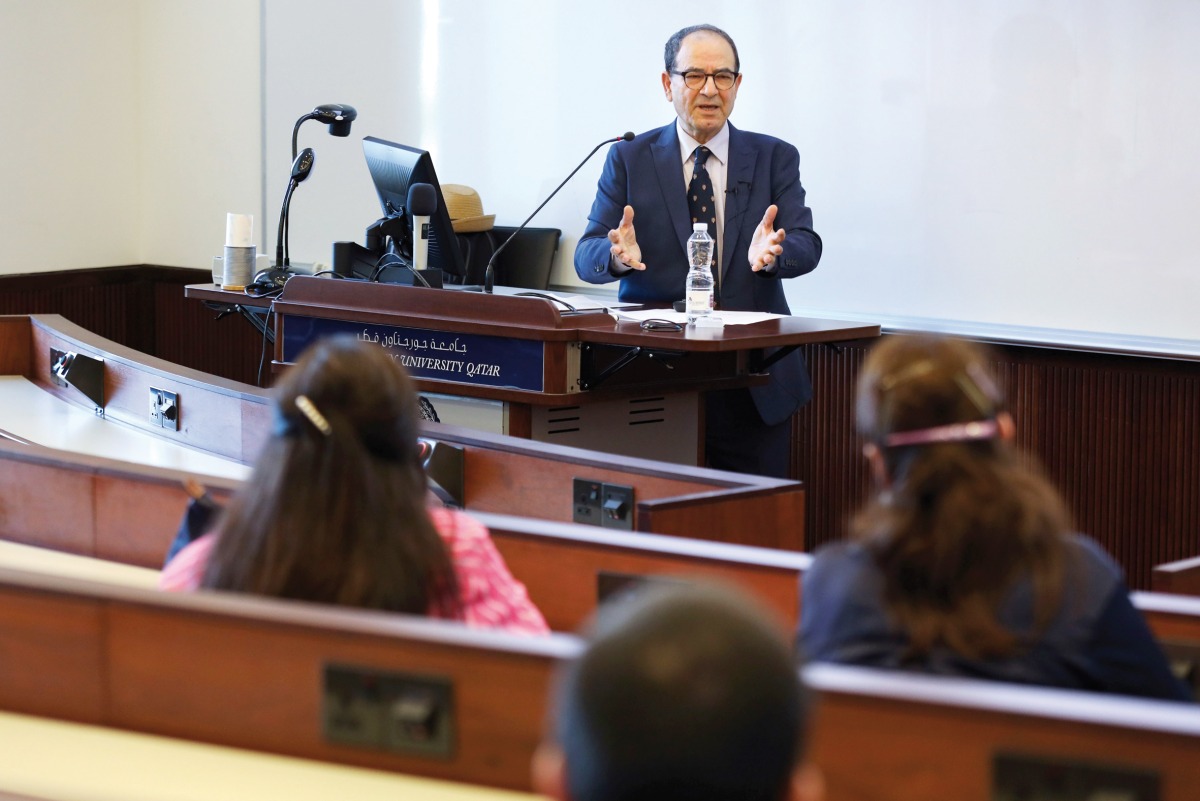Dr. Yasir Suleiman, an Emeritus Professor of Modern Arabic Studies at the University of Cambridge, recently addressed the politics of Arabic language teaching and usage at Georgetown University in Qatar. He discussed the traditional emphasis on form over meaning in Arabic grammar education, highlighting the deep-seated beliefs that view deviating from grammatical rules as deviating from the truth. As a consultant on Qatar’s Education for a New Era initiative, Dr. Suleiman advocated for a modern pedagogy that focuses on practical application and contextual learning, rather than rote memorization.
During a discussion at GU-Q’s Arabic Book Club, Dr. Suleiman delved into how Arabic terms are often misinterpreted for political purposes. He touched on the deliberate misinterpretation of Arabic terms to perpetuate anti-Arab and Islamophobic sentiments in America, as explored in his book, The Arabic Language in the Fray: A Study in Ideology, Anxiety and Terrorism. Dr. Suleiman highlighted the racism faced by Arabic speakers in their new environments and how some use language to justify animosity and associate them with terrorism.
The event, moderated by GU-Q Associate Professor Dr. Yehia Mohamed, included a panel discussion with other esteemed professors who examined the themes of linguistic ideology and the misuse of Arabic terms. Dr. Suleiman’s research focuses on understanding Arabic grammar, its organization, testing, and the resistance towards its alteration. His publications, such as “The 2018 Language Ideological Debate in Morocco,” delve into the Arabic language’s role in social issues, particularly those related to identity and conflict.
In his talks, Dr. Suleiman emphasized the need for educational reforms that take a more modern approach to teaching Arabic, pushing for practical application and contextual learning. He highlighted the negative stereotypes and biases faced by Arabic speakers, pointing out how language can be manipulated to perpetuate negative perceptions and justify discrimination. By shedding light on these issues, Dr. Suleiman hopes to inspire discussions and reforms in language education that promote understanding and inclusivity.
Overall, Dr. Yasir Suleiman’s discussions at Georgetown University in Qatar brought attention to the political use of Arabic language and the misinterpretation of terms for divisive purposes. His expertise in Arabic studies and language ideology shed light on the challenges faced by Arabic speakers and the importance of promoting a more inclusive and accurate portrayal of the Arabic language. By advocating for educational reforms and greater understanding of linguistic issues, Dr. Suleiman aims to combat bias and discrimination faced by Arabic speakers in various contexts.


























